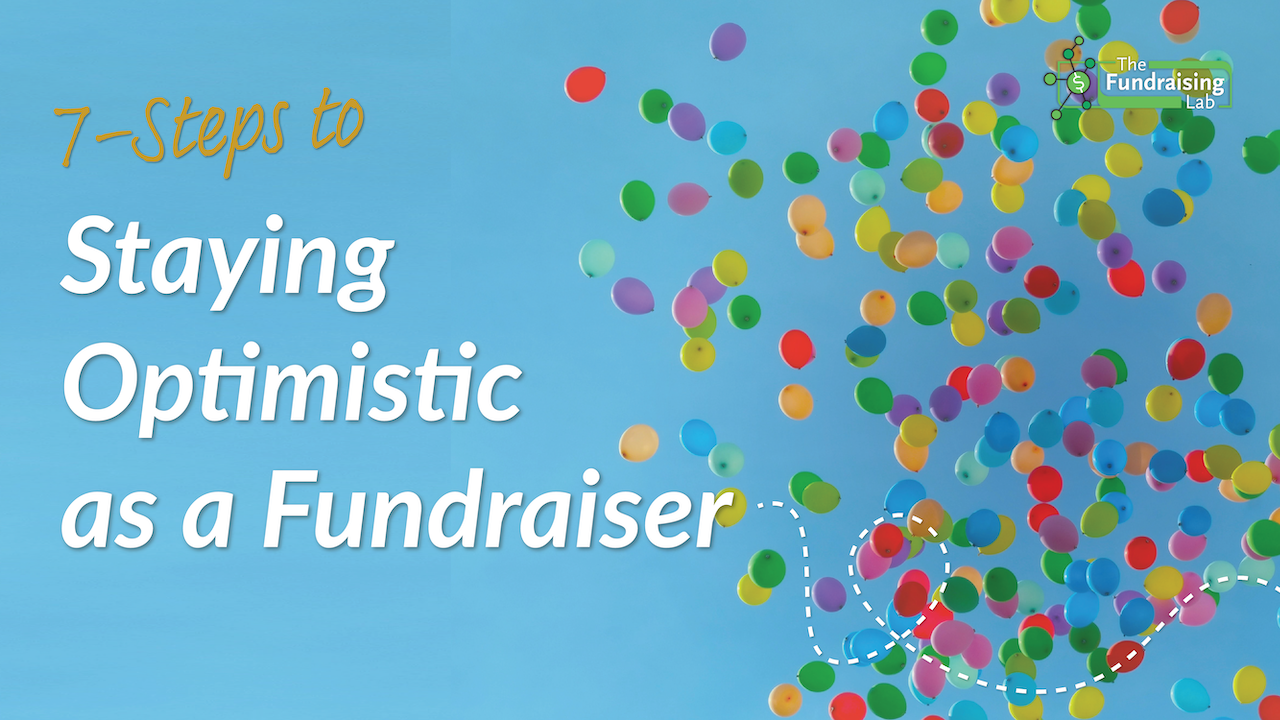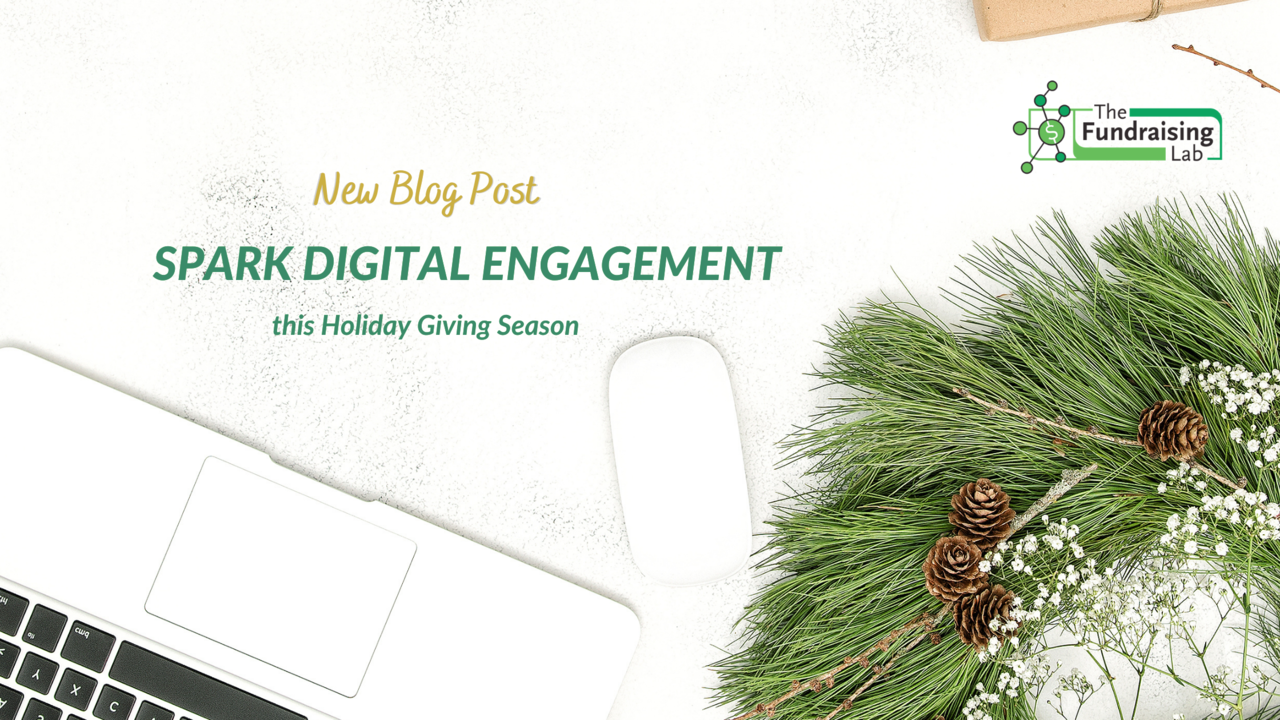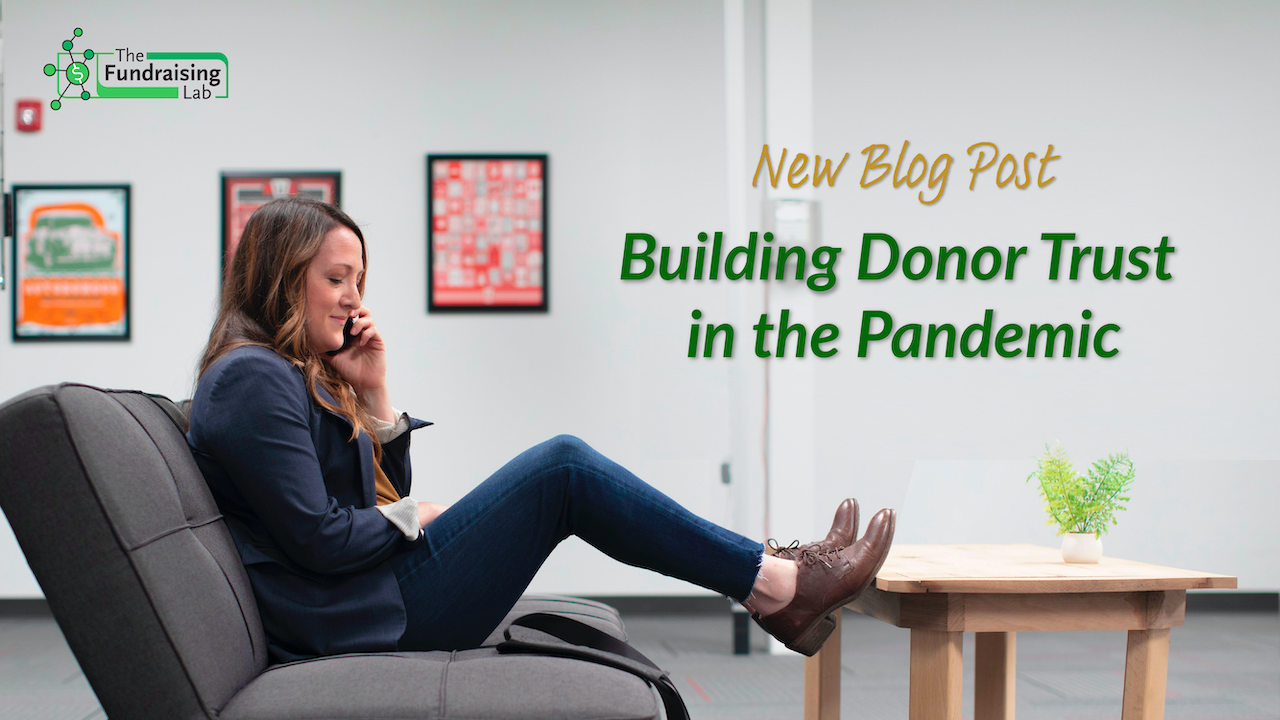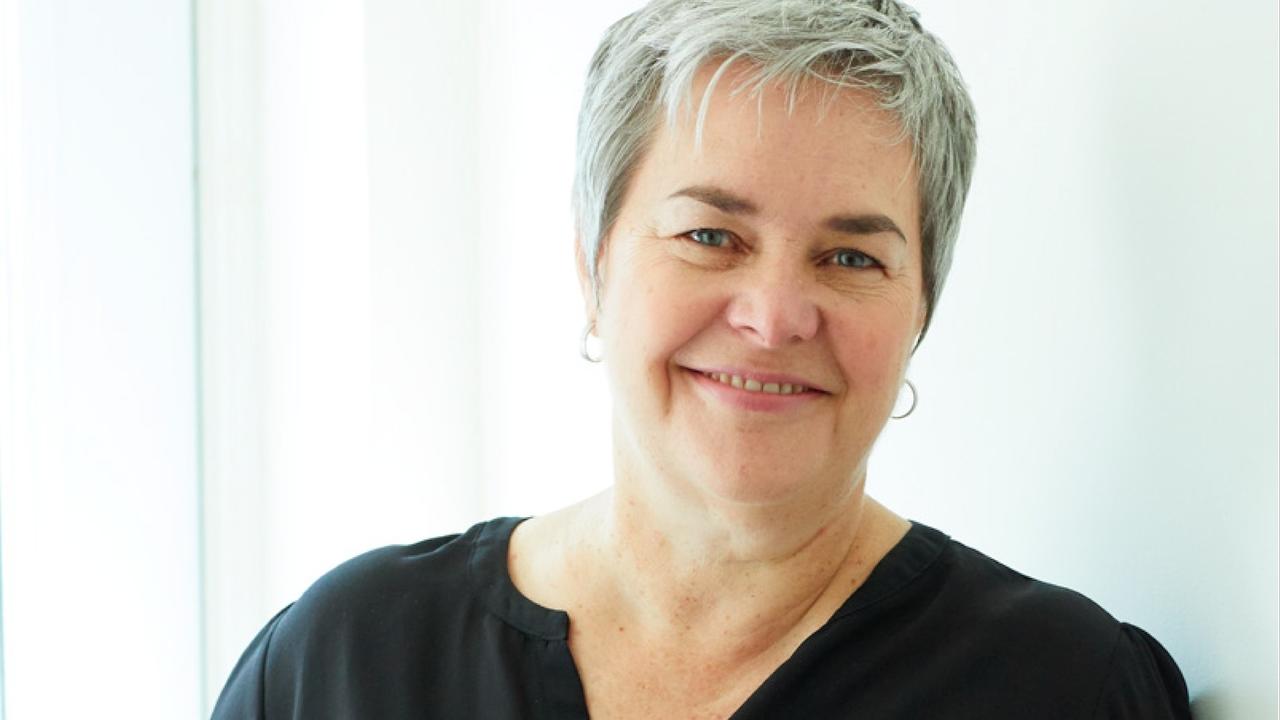28 Fundraisers Share How They're Maintaining Their Optimism Quotient

In the car driving around Nova Scotia, just a few months after returning to live here, I got to thinking about optimism. Maybe it was the beauty I was surrounded by that led me there, but it stuck in my head and when I got to where I was going, I sat down and wrote a blog post about it.
Then I got to thinking that I should ask my LinkedIn peeps what keeps their OQ (Optimism Quotient) fueled. So, I did. And they did not disappoint.
I wanted to share some of the answers...
How to Stay Optimistic as a Fundraiser

Our stock in trade as fundraisers is optimism.
When I was Academic Coordinator at Ryerson University's Fundraising Management Program, I was invited to speak at a panel each year for the Intro to Fundraising students. The question that the instructor asked every year was: what is one word you would use to describe fundraisers. I always hoped I could go first so I could answer what I answered every year: curious. Because I do think we need to be curious if we are goin...
How to Spark Digital Engagement this Holiday Giving Season

Fall is here! Time for pumpkin spice everything, beautiful orange and red trees and holiday fundraising! Yes, it is that time of the year again – time to get ready for your holiday appeal. Do you have a holiday campaign strategy in place? And if so, what is the role that digital media plays in your campaign?
If you’re not planning a digital element to your campaign, you might want to reconsider. The COVID-19 pandemic and subsequent lockdown has forced us all to evaluate our digital landscape, o...
Building Donor Trust in the Pandemic

It’s not an exaggeration to say that this year has been challenging. No matter where you live, your life has likely been affected either directly or by the repercussions of the coronavirus pandemic.
For the charitable sector, this has been an especially difficult time as we face billions of dollars in lost revenue, disruptions to service delivery and mass lay-offs. All new challenges to a sector where the long-standing social issues we work towards have yet to be addressed.
If you’re respon...
Expanding the Fundraising Lab!

I started the Fundraising Lab in the fall of 2019 as an addition to my consulting business, Cathy Mann & Associates, as a way to offer affordable digital fundraising courses.
The past year of building the Fundraising Lab alongside my work with Cathy Mann & Associates has changed the way I think about the fundraising consulting space.
I started my consulting practice 13 years ago to help social change charities raise more money to serve their important missions.
Today, the Fundraising Lab is t...
Finding a Sponsor | Tip of the Morning to You!
Tip of the Morning to You!
Cathy here, president of the Fundraising Lab. Today's tip is for those at Step 2 of their fundraising journey, which I refer to as "Building the Plane While Flying It". You’ve been at it for a while now and have learned a lot, but you may be a bit overwhelmed. And as always, you still have to raise more money.
Tip #6 is to to find sponsors, not just mentors. Credit where credit is due. I heard about this notion from Lacey Kempinski, who was interviewing Megan Tregun...
Volunteer | Tip of the Morning to You
Welcome to “Tip of the Morning, to you!” where Cathy shares a quick tip about the Fundraiser’s 4-step Learning and Action Journey. The journey is a common path that fundraisers follow as they move through their careers.
Step 2 of the journey is called "Building the Plane While Flying It." You’ve been at it for a while now and have learned so much. In fact, you might a bit overwhelmed. There is so much to do and still you have TO RAISE MONEY! You’re keen to learn even more.
Tip #5: VOLUNTEER. C...
Don't Expect Perfection | Tip of the Morning to You
Welcome to another installment of “Tip of the Morning to You!” If you’re on Step 1 (I Can Do This!) of a Fundraisers Learning and Action Journey, you’re enthusiastic and have some experience working or volunteering in the sector. While you bring a lot of skills to the job, there are a lot of things you’re not familiar with or aware of: about the job, about the sector and about the profession. But you’re keen to learn.
Tip #4: DON’T EXPECT PERFECTION OF YOURSELF – you’re learning new skills. An...
Practice Humility | Tip of the Morning to You!
Welcome to “Tip of the Morning to You!”
Step 1: I Can Do This!
You’re enthusiastic and have some experience working or volunteering in the sector. While you bring a lot of skills to the job, there are a lot of things you’re not familiar with or aware of: about the job, about the sector and about the profession. But you’re keen to learn.
Tip #3: PRACTICE HUMILITY.
Ours is a profession with a body of knowledge. If you are coming to this sector from another sector, acknowledge that we have ye...
Learn the Rules, Then Break Them | Tip of the Morning to You
Welcome to “Tip of the Morning to You!” If you’re on Step 1 (I Can Do This!) of a Fundraiser’s Learning and Action Journey, you’re enthusiastic and have some experience working or volunteering in the sector. While you bring a lot of skills to the job, there are a lot of things you’re not familiar with or aware of: about the job, about the sector and about the profession. But you’re keen to learn.
Tip #2: LEARN the rules so you can be strategic and confident about breaking them. There is so much...

